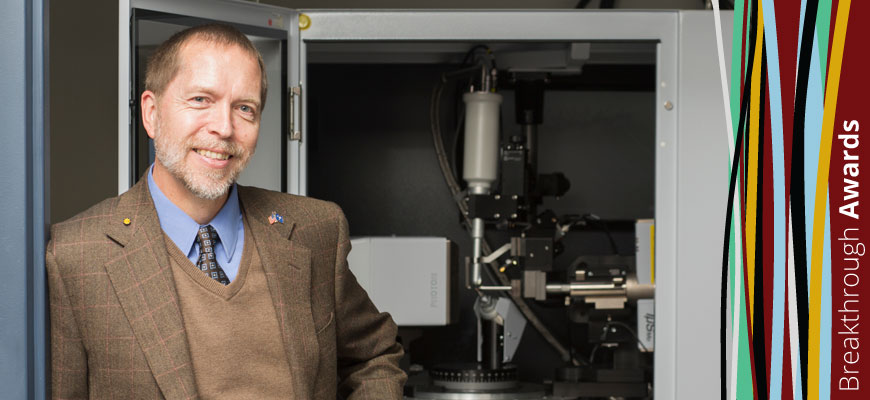
Securing the future
Chemistry researcher Hans-Conrad zur Loye looks to secure radioactive material for thousands of years
Posted on: March 31, 2017; Updated on: March 31, 2017
By Page Ivey, pivey@mailbox.sc.edu, 803-777-3085
How do we secure material that will be dangerous for more than one thousand years? That is the question Hans-Conrad "Hanno" zur Loye has been trying to answer for more than 20 years.
Since coming to Carolina in 1996, zur Loye has worked to develop high-temperature crystal growth techniques to prepare single crystals of novel complex oxides. His work has culminated in the creation of the Center for Hierarchical Waste Form Materials, which will develop storage materials that can contain nuclear waste for thousands of years.
The waste will be stored in highly stable ceramic form, which also renders it unextractabe for use in weapons, zur Loye says.
“As an undergraduate, I worked for a professor, and that set the course for my career,” he says. “The goal is to have fun and make something that is new. It’s that thrill of discovery. In chemistry, you have to enjoy making things and I do.”
Through the center, which includes the Savannah River National Laboratory, zur Loye and his team will work to develop and test new methods that include the use of specialized ceramics, metal-organic composite materials and nanoparticles to safely contain some of the most long-lasting forms of nuclear waste — including waste from power plants and nuclear weapons.
“How do you test something the long-term stabilty of something that needs to be around for a few thousand years?” he says of the center’s modeling efforts. “We can accelerate testing by using very short-lived but highly radioactive isotopes."
zur Loye, who also is an associate dean for research in the College of Arts and Sciences, says his interest in mentoring younger faculty was partly a result of not having a good relationship with his first mentor.
“We had one meeting,” zur Loye says of that experience. “He didn’t know anything about the chemistry I did. You need someone close enough to what you’re doing.”
The goal is to have fun and make something that is new. It’s that thrill of discovery. In chemistry, you have to enjoy making things and I do.
Hans-Conrad zur Loye
But he also now can see a research and academic career from a different perspective.
“As an assistant professor, you get a lot of good advice, but you don’t always follow it,” he says. “I try to suggest things that would be beneficial for a young faculty member’s career.
“It’s not ‘You should do this in research’; it’s more about time management, where to apply for funding, how to deal with your research group,” he says. “These are things you’re not trained for. I like to think of it as commonsense advice, for academia.”